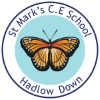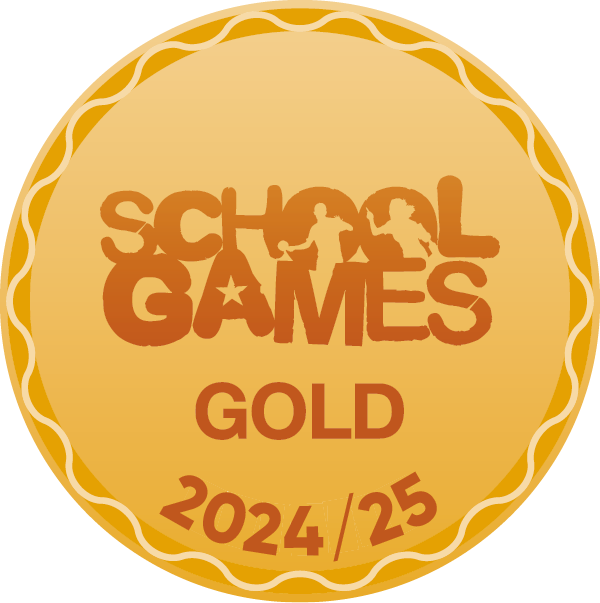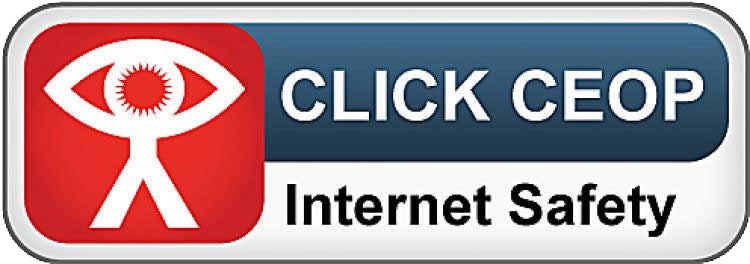Science
Curriculum Statement
At St. Mark’s CE School, our science curriculum is designed to foster curiosity, critical thinking, and a deep appreciation for the natural world. Through engaging, hands-on learning experiences, we support pupils in developing a solid foundation of scientific knowledge and skills that build progressively from EYFS to the end of Key Stage 2.
Our approach emphasises inquiry-based learning, real-world applications, and environmental responsibility, reflecting our commitment to nurturing thoughtful, responsible young scientists. We ensure inclusivity by providing differentiated resources and challenges, enabling every child to actively participate and succeed in their scientific learning journey.
By integrating cross-curricular themes and offering enrichment opportunities, our curriculum not only aligns with the National Curriculum but also inspires pupils to understand and value science's role in everyday life and the wider world.
Intent
At St. Mark's CE School, our intent in science is to spark curiosity, foster a sense of wonder and build foundational knowledge and skills that empower all children to explore, question, and understand the natural world around them. We strive to:
Inspire Enthusiasm and Curiosity
Through hands-on, inquiry-based learning, we aim to cultivate an enduring interest in science by encouraging pupils to ask questions, make observations, and think critically about the world around them.
Build Knowledge and Skills Progressively
From the Early Years Foundation Stage through to Key Stage 1 and Key Stage 2, our curriculum is designed to gradually build students’ understanding of key scientific concepts and develop essential skills in scientific methods, including observation, investigation, and evaluation.
Develop Core Scientific Skills
We are committed to teaching children scientific knowledge and skills, including accurate observation, data collection, analysis, and interpretation. Children learn to make hypotheses, test their ideas, and reflect on their findings, cultivating a sense of responsibility toward accuracy and objectivity in scientific inquiry.
Encourage Respect for the Environment
In alignment with the ethos of St. Mark's, our science curriculum encourages respect and stewardship for the environment. We believe that by fostering awareness of environmental issues, we enable our pupils to become responsible future citizens who understand the impact of their actions on the world.
Provide Equal Opportunities
Science is for everyone. We ensure that all students, regardless of ability, background, or starting point, have opportunities to succeed, access practical and inspiring science lessons, and be encouraged to participate actively and enthusiastically.
Link Science to Real-World Contexts
Our lessons connect scientific principles to real-life applications, allowing students to see the relevance of science beyond the classroom. This approach helps students understand how science contributes to and enhances everyday life, from healthcare to environmental conservation.
By delivering a science curriculum rooted in the above aspects if learning, we aim to develop confident, inquisitive and knowledgeable young scientists who are prepared for continued learning and discovery.
Implementation
To ensure our science curriculum at St. Mark's CE School is fully realised and meaningful for all pupils, we implement the curriculum through structured, engaging and hands-on activities that align with the National Curriculum’s aims and objectives. This implementation plan outlines our approach across EYFS, Key Stage 1 and Key Stage 2.
Early Years Foundation Stage (EYFS)
In EYFS, science is integrated into the Understanding the World area of learning, encouraging exploration and inquiry within natural and built environments.
Play-Based Exploration:
Children are encouraged to investigate their surroundings through play-based, sensory activities. This includes exploring materials (sand, water, soil) and observing plants, animals, and seasonal changes.
Outdoor Learning:
Regular outdoor activities, including nature walks and observing school grounds, allow children to experience changes in the environment and understand concepts such as growth, decay, and properties of materials.
Early Scientific Vocabulary:
Introducing age-appropriate scientific vocabulary helps children describe what they observe and begin to understand basic scientific concepts in a way that is meaningful for their stage of development.
In Key Stage 1, science lessons become more structured, building on the curiosity developed in EYFS and introducing more formal investigation and observation techniques.
Topics of Focus:
Pupils explore key topics, including plants, animals, everyday materials, and seasonal changes, with an emphasis on direct observation and simple experiments to develop foundational scientific skills.
Guided Enquiry:
Teachers use questions and prompts to guide children’s inquiries. Pupils learn to ask their own questions, make simple predictions, and begin to carry out practical experiments in a structured way, fostering independence in the scientific process.
Use of Practical Resources and Visuals:
Engaging resources like magnifying glasses, thermometers, and digital tools help children make sense of their observations and enhance learning experiences.
Recording and Sharing Observations:
Pupils learn basic recording methods, such as drawing, labelling, and using simple charts, to communicate findings. Sharing their observations with peers promotes collaborative learning and reflection.
Key Stage 2 (Years 3–6)
Key Stage 2 introduces pupils to more advanced scientific concepts and methods, further developing their analytical skills and understanding of science’s relevance to the wider world.
Thematic and Skills-Based Lessons:
Lessons cover topics like forces, light, sound, electricity, states of matter, and human biology, with a focus on developing investigative skills. Pupils conduct experiments to test hypotheses, analyse data, and draw conclusions.
The Scientific Process:
Pupils learn to follow the scientific process, including forming hypotheses, making predictions, conducting fair tests, analysing data, and communicating findings. Emphasis is placed on recording results systematically through tables, charts and written explanations.
Emphasis on Scientific Language:
Pupils develop the ability to articulate scientific ideas clearly and accurately. This includes mastering subject-specific vocabulary and explaining complex processes using correct terminology.
Applying Science to Real Life:
Pupils are encouraged to make connections between science and everyday life, with opportunities to explore topics related to health, technology and environmental conservation. This includes special events like Science Week, guest speakers, and visits to science museums or education centres.
Assessment and Reflection:
Ongoing assessment through quizzes practical tasks, and discussions allows teachers to gauge pupils’ understanding and inform future planning. Pupils are encouraged to self-reflect on their learning to build metacognition and self-awareness in scientific study.
Impact
The impact of our science curriculum at St. Mark’s CE School is seen in the development of confident, curious and knowledgeable young scientists who actively engage with and understand the world around them. Pupils demonstrate improved critical thinking, analytical and observational skills as they progress from EYFS through Key Stage 2, applying scientific methods to explore concepts and solve problems. The curriculum's emphasis on environmental stewardship encourages pupils to make responsible choices and develop an awareness of sustainability, fostering a sense of accountability and respect for nature.
Through assessments and real-world applications, pupils not only gain scientific knowledge but also the confidence to articulate and share their understanding, enhancing communication skills and self-reflection. Furthermore, cross-curricular links strengthen connections with other subjects, such as Maths and English, which supports overall academic development. This well-rounded approach ensures pupils leave St. Mark’s equipped with the curiosity, resilience, and skills needed to explore science meaningfully in future studies and their everyday lives.
Enrichment activities
At St Mark's we extend pupils' learning by getting involved in a range of experiences such as SMILE meadow, Forest Skills sessions, visits to the Ashdown Forest, Science Weeks and inviting a range of external speakers, including parents, to share with our pupils some of the science they use in their everyday lives.
Progression Documents
science progression document.pdf

 St Mark's
St Mark's

